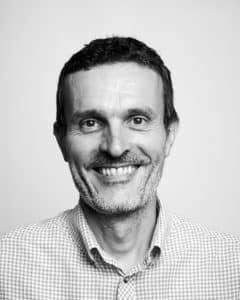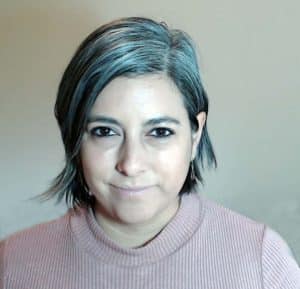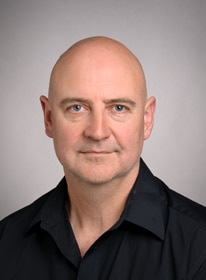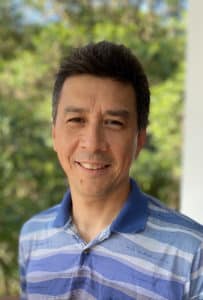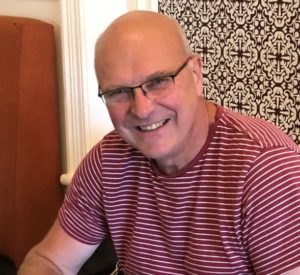Markus Riegler – AES Invited speaker: Monday 6/12, 11:00 ACDT
Markus Riegler is based at the Hawkesbury Institute for the Environment of Western Sydney University. Markus’ research focuses on different aspects of arthropod symbioses with microbes, from microbial symbionts which can be seen as ‘acquired’ genomes that synthesise required nutrients for hosts, protect their hosts against parasites and pathogens, or influence patterns of host plant use, to microbial symbionts that act as parasites, for example, by hijacking the reproductive biology of hosts for their own transmission benefit. Another research focus involves assessing the effects of climate change (e.g. increased atmospheric concentrations of CO2) on insect physiology, development and communities.
Juanita Rodriguez – SASB Invited speaker: Tuesday 7/12, 11:00 ACDT
What museums can tell us about biodiversity, evolution and biogeography: new technologies and future perspectives
Juanita Rodriguez is a research scientist at the Australian National Insect Collection. Her research focuses on the use of morphological and molecular data to study the systematics, diversification, evolution and historical biogeography of terrestrial arthropods. Most of her research has been dedicated to Hymenoptera, more specifically ants and spider wasps (Hymenoptera: Pompilidae). Recent projects include the use of transcriptome data to study the phylogenomics of two ancient terrestrial arthropod groups: spiders (Araneae) and millipedes (Diplopoda).
She grew up in Bogotá, Colombia, where she obtained her B.Sc and M.Sc degrees at Universidad Nacional de Colombia. In 2014 she obtained her Ph.D. at Utah State University. She worked as a postdoctoral researcher at Auburn University between 2014-2016. In August, 2016 she joined the Australian National Insect Collection.
Richard Newcomb– AES invited speaker: Tuesday 7/12, 11:45 ACDT
Richard Newcomb is an Evolutionary Geneticist who specialises in chemosensory science. His research focuses on odour sensing in animals. Richard is an author on over 100 publications and an inventor on five patents. He is associate editor for the Journal of Chemical Ecology and on the editorial boards of Insect Biochemistry and Molecular Biology and Chemical Senses. Currently Richard is the Chief Scientist at Plant & Food Research, Honorary Professor of Evolutionary Genetics at the University of Auckland and is a member of the Marsden Council, Royal Society of New Zealand, Te Apārangi.
Nathan Lo – AES Ian Mackerras medallist: Wednesday 8/12, 11:00 ACDT
From coal-swamp dwellers to master architects: the evolution of cockroaches, termites and their symbionts
Nathan Lo is an evolutionary biologist interested in genome evolution, molecular ecology, and phylogenetics of arthropods. He has research programs on the evolution of social behaviour in termites and the symbionts of various taxa. After joining the School of Life and Environmental Sciences at The University of Sydney in 2009, he was an Australian Research Council (ARC) QEII Research Fellow from 2010-2014, and ARC Future Fellow from 2017-2021. He was Biodiversity Research Initiative Leader at the Australian Museum, Sydney from 2008-2009, and prior to this appointment undertook postdoctoral fellowships at the Universita’ di Milano, Italy, National Institute of Agrobiological Sciences, Japan, and The University of Sydney.
Andy Austin – SASB Distinguished career awardee: Thursday 9/12, 11:00 ACDT
What I have learnt from a career studying dark taxa
Andy grew up in Sydney’s Sutherland Shire, and studied entomology and zoology at Sydney University, followed by a PhD in entomology at Adelaide University’s Waite Campus, working on the systematics and ecology of spider egg parasitoids. Soon after he took up a research appointment with the Commonwealth Institute of Entomology at the Natural History Museum, London in 1982, returning to Adelaide in 1985 to take up a lectureship in systematic entomology at the Waite. Over the subsequent 36 years, he has worked with colleagues in laboratories and collections across Australia and in the UK, Germany, the USA and Canada. He has been the long-standing Director of the Australian Centre for Evolutionary Biology and Biodiversity, and a previous president of the Society of Australian Systematic Biologists, the Australian Entomological Society, and the International Hymenopterists’ Society. His research interests include the biology, systematics and evolution of parasitic wasps, the biology and systematics of spiders, and the evolution and phylogeography of Australia’s arid zone subterranean invertebrates. Andy has been a passionate undergraduate lecturer and a dedicated mentor of PhD students and early career researchers. In his spare time he swims, reads, looks after a small farm, and watches sci-fi.
